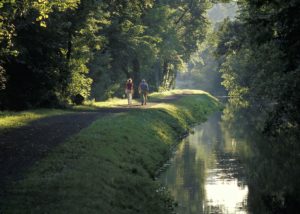August 26, 2014 2014
For Immediate Release
Contact Kelly Donaldson, 717.234.5550, ext. 4205
CBF LAUNCHES CLEAN WATER COUNTS CAMPAIGN
Goal is Clean Water for the Keystone State
(HARRISBURG) –The Chesapeake Bay Foundation (CBF) has launched an exciting statewide campaign, Clean Water Counts.
According to the Pennsylvania Department of Environmental Protection’s most recent statewide water quality survey, nearly one-quarter, almost 20,000 miles, of the creeks, rivers, and lakes that we rely on for recreation, and for drinking and household uses, are polluted.
CBF is urging Pennsylvania officials to make clean water a priority throughout the Keystone State, and to commit the needed funding to ensure that all 83,000 miles of waterways in the state are clean.
“Healthy families, strong communities, and a thriving Pennsylvania economy depend on it,” said Harry Campbell, CBF’s Pennsylvania Executive Director. “That’s why we’re calling on the state to prioritize clean water and funding to decrease pollution from agricultural activities and runoff from our urban and suburban communities.”
In addition to calling on state officials to commit the needed resources for clean water, CBF is also asking something of local officials and citizens.
“We’re asking all Pennsylvania residents to show their support for clean water by signing the Clean Water Counts online petition,” said Campbell. “And we’re asking County Commissioners throughout the state to adopt Clean Water Resolutions, to further encourage state officials to prioritize clean water.”
Without targeted prioritization and funding to address pollution issues, the Commonwealth’s most important resource, clean water, will continue to be susceptible to pollution and degradation
The Clean Water Counts campaign is a part of CBF’s on-going mission to improve water quality locally, and downstream in the Chesapeake Bay. By working together and following Pennsylvania’s Clean Water Blueprint, we can restore our local rivers and streams.
Together, we can have clean water for today, and for generations to come.
Online petition signatures will be accepted through October 18th, the anniversary of the Clean Water Act. To learn more about the campaign go to cbf.org/PAForCleanWater.
